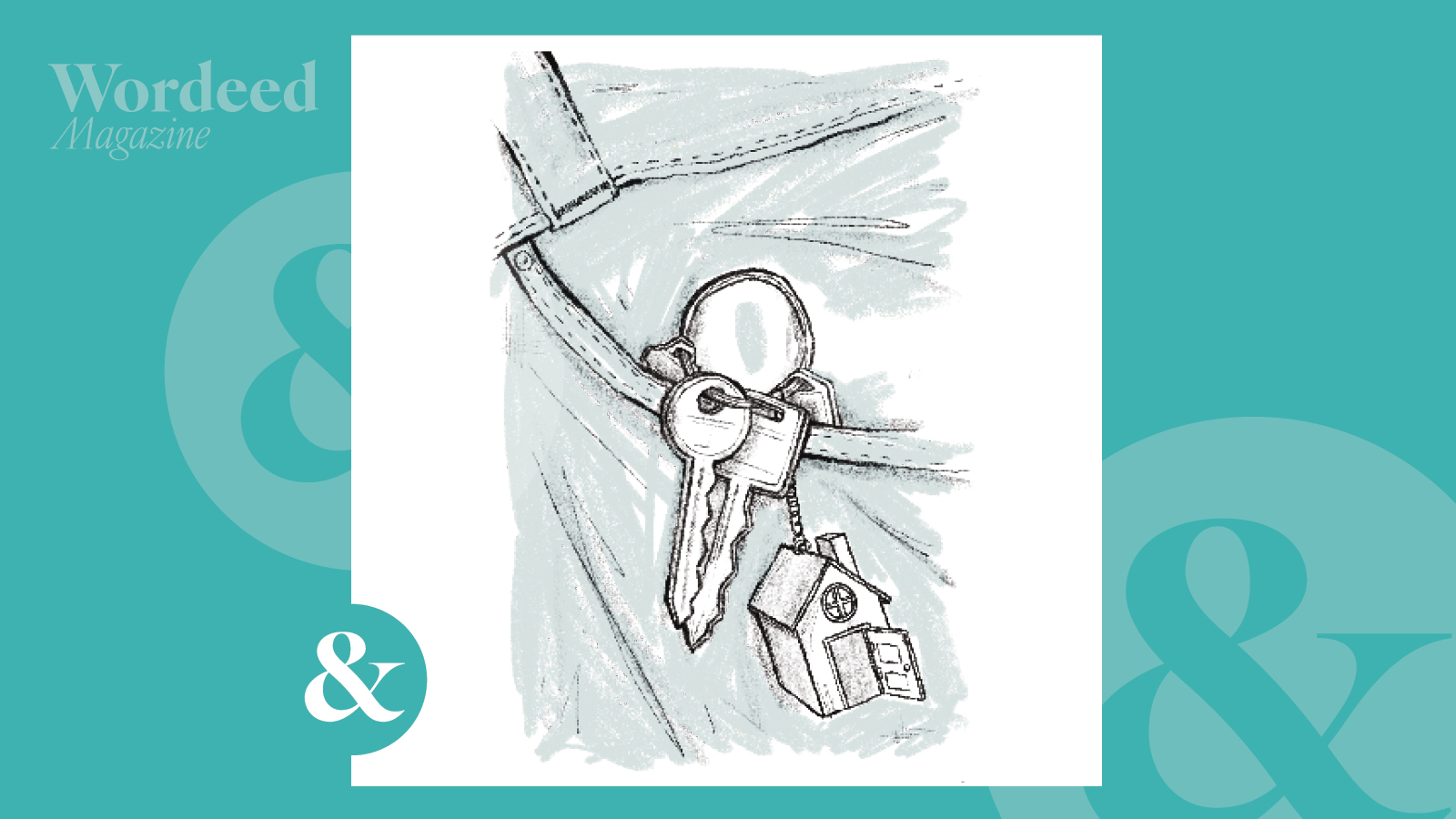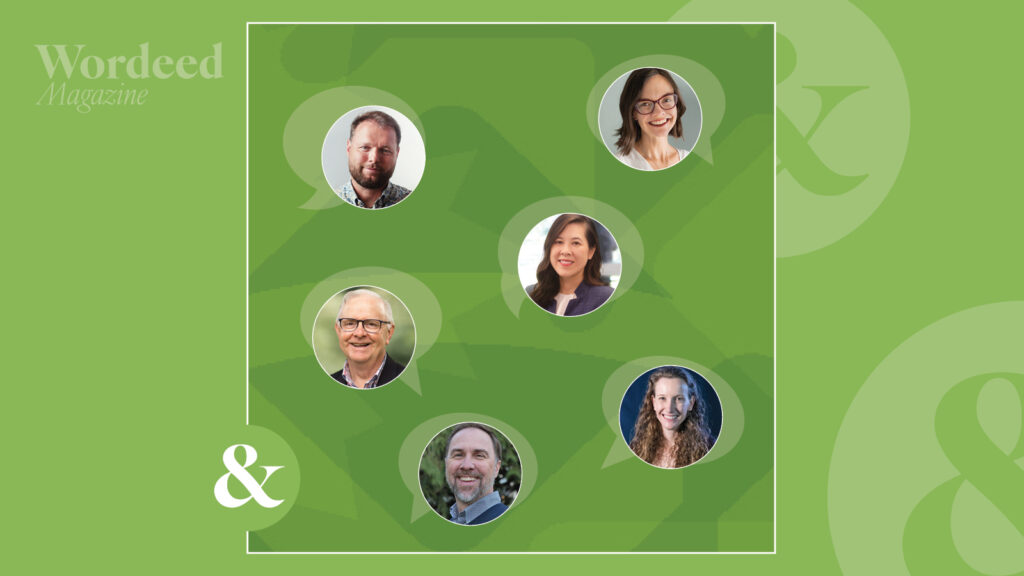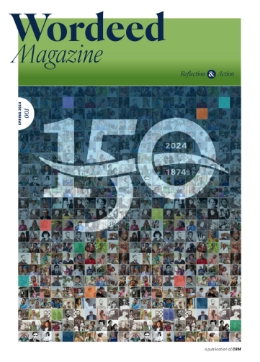My entire adult life I have only had one thing in the right pocket of my trousers. My keys.
Those keys start my car, unlock the doors to my office and my home, and any other doors open to me in that season of life.
Forcibly Displaced People (FDP) have no keys in their pockets. In order to escape danger they have had to leave behind all the doors that were “open” to them. They have lost not only their house, but also everything that made their house their home: family, friendships, community, workplace, church or other place of worship, and more. Everything that defined them—that defined their place in the world—has been left behind.
They flee because of circumstances beyond their control. Refugees are not economic migrants. They are not seeking a better life, they are seeking a safe life. They are escaping from serious threats that put their lives in danger. Some dangers are from natural disasters, but many are caused by humans through wars, civil conflict, failed or corrupt states, and terrorism.
We often use the word “refugee” as a blanket term for all migrants, but there are clear distinctions. The term “refugee” applies to people who have crossed a border and have been given refugee status by a country or the United Nations, i.e. their refugee claim has been processed and approved. This is not the same as the term “asylum-seeker” or “refugee claimant” (the Canadian term) which applies to people who have crossed a border and made a refugee claim but have yet to undergo the approval process. There is also another term, “internally displaced,” which applies to people who have fled danger but remained in their country. The more general term, Forcibly Displaced People, applies to all of these groups.
Forcible displacement is not a new thing:
• Joseph was trafficked to Egypt and sold into slavery.
• The Israelites were forcibly displaced, living in exile after they were conquered.
• Mary and Joseph took the baby Jesus and fled danger from the murderous tyrant, Herod.
However, there are a record number of approximately 110 million FDPs today, which is 1 out of every 80 people! Most of them don’t get very far: 76% are temporarily hosted by low- and middle-income countries nearby. Some will eventually return home, but many won’t.
A very small proportion of FDPs make it to Canada and fall into 3 categories:
• Government-sponsored refugees
• Privately-sponsored refugees
• Refugee claimants—who will go through the refugee determination process (but have to leave if their claim is unsuccessful).
Churches in Canada have been ahead of our culture for many decades in privately sponsoring refugees. When I worked in the refugee sector in Canada, governments and other non-profit organizations often mentioned the Church in a positive light because it is well-known for being helpful to Forcibly Displaced People. Today, in addition to sponsoring refugees, we have a new opportunity to come alongside asylum-seekers as they wait for their refugee claim to be heard. As the Church, how might we reflect and respond to the reality of record numbers of Forcibly Displaced People in our world and in Canada? Here are some thoughts:
1. Use Proper terminology. The term “illegal immigration” is often misused. It is not illegal for an asylum-seeker to come to Canada to seek refuge. International law states that human beings have the right to seek refuge from danger; this law was put into place as a result of the Holocaust genocide of Jews. Canada has a world-class hearing process for asylum-seekers. If their claim is valid, they can stay, otherwise they have to leave.
2. Get equipped. Loving others is what we are called to do, even across cultural and language barriers. The International Association of Refugees Canada is a Christian mission agency that specializes in working with refugees and is an excellent source of training. Plenty of online resources are also available.
3. Become familiar with your context and connect with others for support and possible collaboration. Find out what resources are available to FDPs, what gaps might still exist, and how you might partner with others. Many Canadian cities have local Christian refugee houses that are sources of knowledge and potential partnership. The Welcome Church initiative and the Kentro Christian Network are great places to start.
4. Advocate. Become a voice for FDPs. When conversations around you are using inaccurate terms, add some factual knowledge to the conversation. Encourage your local church to become aware of and involved in this type of ministry. If there is a debate in your city about refugees or asylum-seekers, add your voice.
5. Respond as the Church with the love of Jesus. “You shall also love the stranger, for you were strangers in the land of Egypt.” (Deut. 10:19). God called Abraham to be a blessing to the nations, and the Church inherits this call. The story of Pentecost is, among other things, a story of God blessing every nation. At the end of time, Scripture tells us that nations of the earth will enter the Holy City. Clearly, the Church is meant to be a place of welcome to all cultures—including refugees and asylum-seekers. Unlike governmental or NGO resources, the Church has something unique to offer: friendship. A local church can be an ecosystem of welcome, that helps Forcibly Displaced People find home, integrate into Canadian culture, and feel less alone.
A 50-person Baptist Church in Sudbury, Ontario changed my life when they welcomed me and my family to Canada. My parents weren’t refugees, but as immigrants we were the first people from India living in this small, very white mining town. I grew up with absolutely no memory of racism or exclusion. We were welcomed warmly and integrated quickly into the church. It became home for us; we belonged. That’s why I believe that the Church—including small churches—are uniquely positioned to be the welcome of God to newcomers in general and refugees in specific. Calvary Baptist Church did it for me. Today we can do it for others.
What first steps might you take to help someone put keys back into their pockets?




